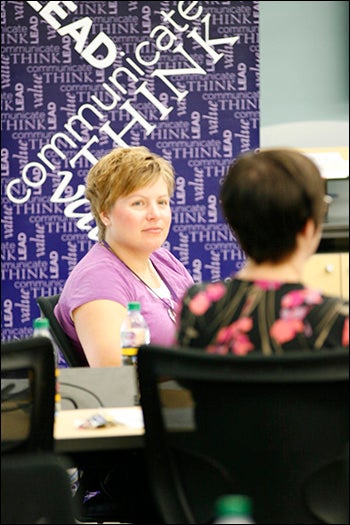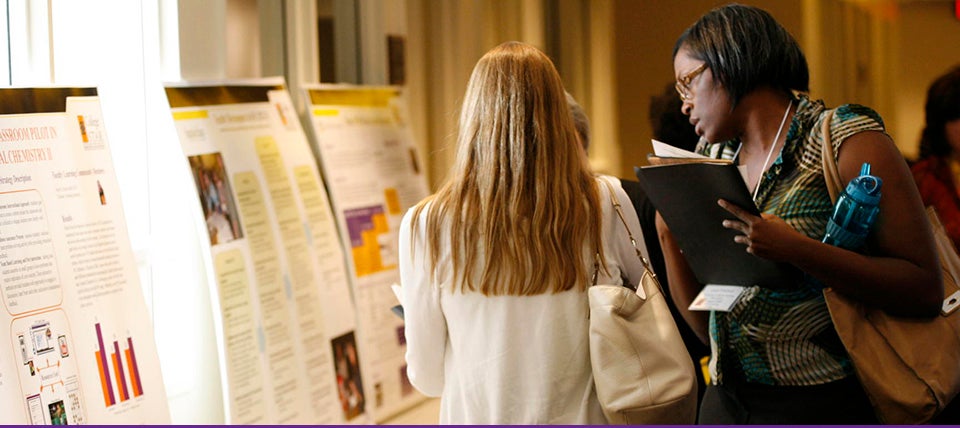‘ALL ABOUT ACCESS’
Educators share experiences serving students with learning differences
Helping students with learning differences succeed at the college level was the focus of a recent conference that drew more than 170 educators and students to East Carolina University.
The third annual Shared Learning Conference, a component of a UNC-system project supporting students with learning differences, was held May 21-23. ECU, Appalachian State University and the University of North Carolina at Greensboro all have College STAR programs – Supporting Transition, Access and Retention – for students and faculty on their campuses.
The conference enabled educators from three different states and 32 institutions to learn from each other and take new perspectives and ideas back to their own academic setting. Included were faculty, staff and students from colleges and universities as well as educators from the K-12 setting.
ECU Provost Dr. Marilyn Sheerer set the stage when she welcomed the participants to the ECU campus. “We’re all about access and providing opportunities to students who don’t have opportunities,” Sheerer said. “This is part of the mission at East Carolina, and I would suggest the mission of all of our universities in the UNC system.”

Alison Ward from the College STAR team listens as educators share their techniques for supporting students with learning disabilities.
Sheerer said the whole concept behind College STAR is powerful with its emphasis on students, faculty learning communities and universal design for learning. “We don’t see this program as peripheral,” she said. “We see it as part of this campus.”
“UNC recognizes that the state’s economic future is dependent on helping its citizens become better educated and equipped to compete for the jobs of tomorrow,” said Dr. Sarah Williams, head of College STAR and director of the Walter and Marie Williams STEPP Program at ECU.
“In spite of demonstrated abilities, students with learning differences attend and graduate from college at lower rates than their peers,” she said. “The College STAR program is designed to help change those statistics.”
A substantial portion of the conference highlighted the programs and services at ECU, ASU and UNCG. Each participating campus has designed a model that weaves together direct student support targeted to specific populations as well as instructional support for faculty across the campus.
At ECU, the program focuses on students with specific learning disabilities such dyslexia, dysgraphia and dyscalculia. The UNCG program focuses on students with Attention Deficit/Hyperactivity Disorder. The focus at ASU is on students with significant executive functioning challenges, which are typically neurocognitive differences that cause difficulties with tasks which involve planning, flexibility, organization and self-monitoring.
Williams said College STAR hopes to expand to other UNC campuses as funds become available.
The formal sessions were supplemented with in-depth training on software, technology and module development. Thirty-four posters, many of which incorporated universal design for learning, added more depth to the proceedings.
A highlight of the conference was presentations by three Eye-to-Eye Think Different Diplomats. These were college students who shared their stories of struggle and success through different educational settings with learning differences. One of these was Emily Bosak, an ECU junior from Raleigh, who is a participant in the ECU STEPP Program. STEPP stands for Supporting Transition and Education through Planning and Partnerships. Materials from the conference are available at www.collegestar.org.
College STAR is funded by the Oak Foundation of Geneva, Switzerland and the N.C. GlaxoSmithKline Foundation.
